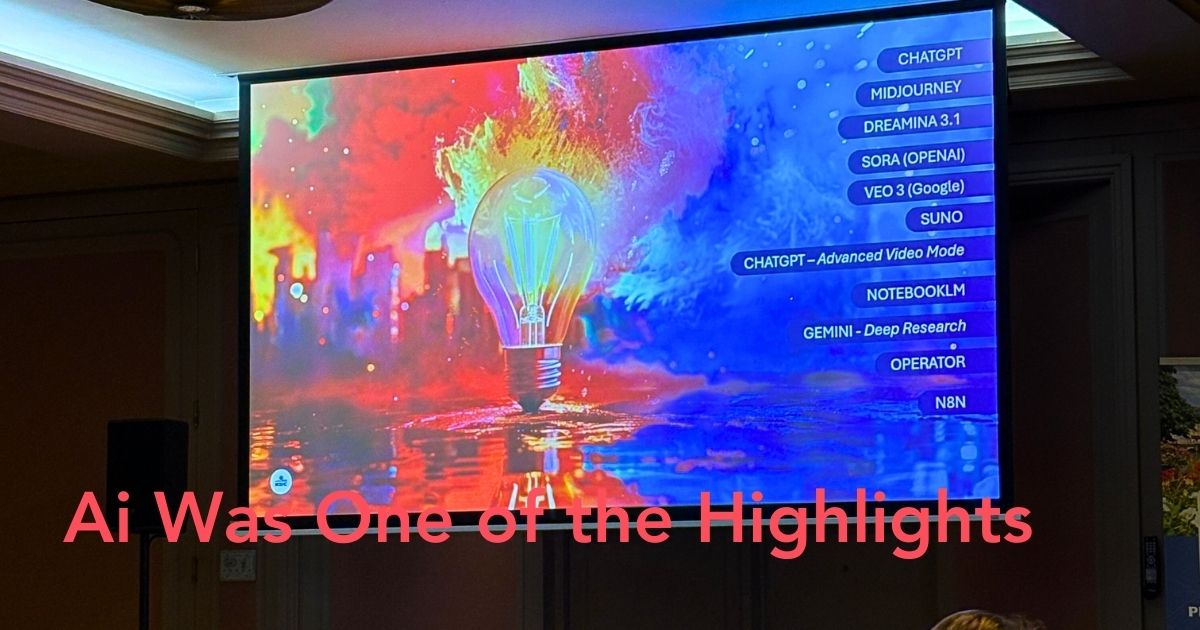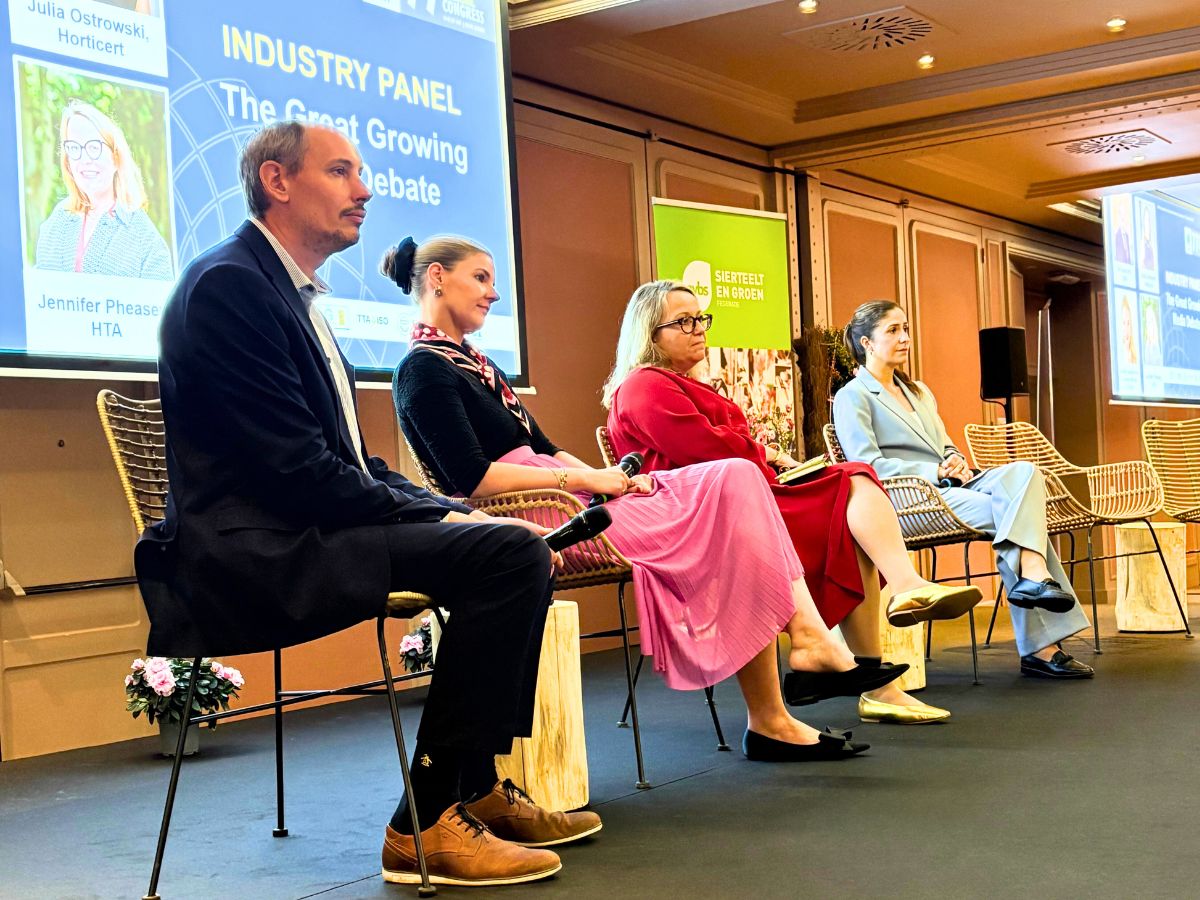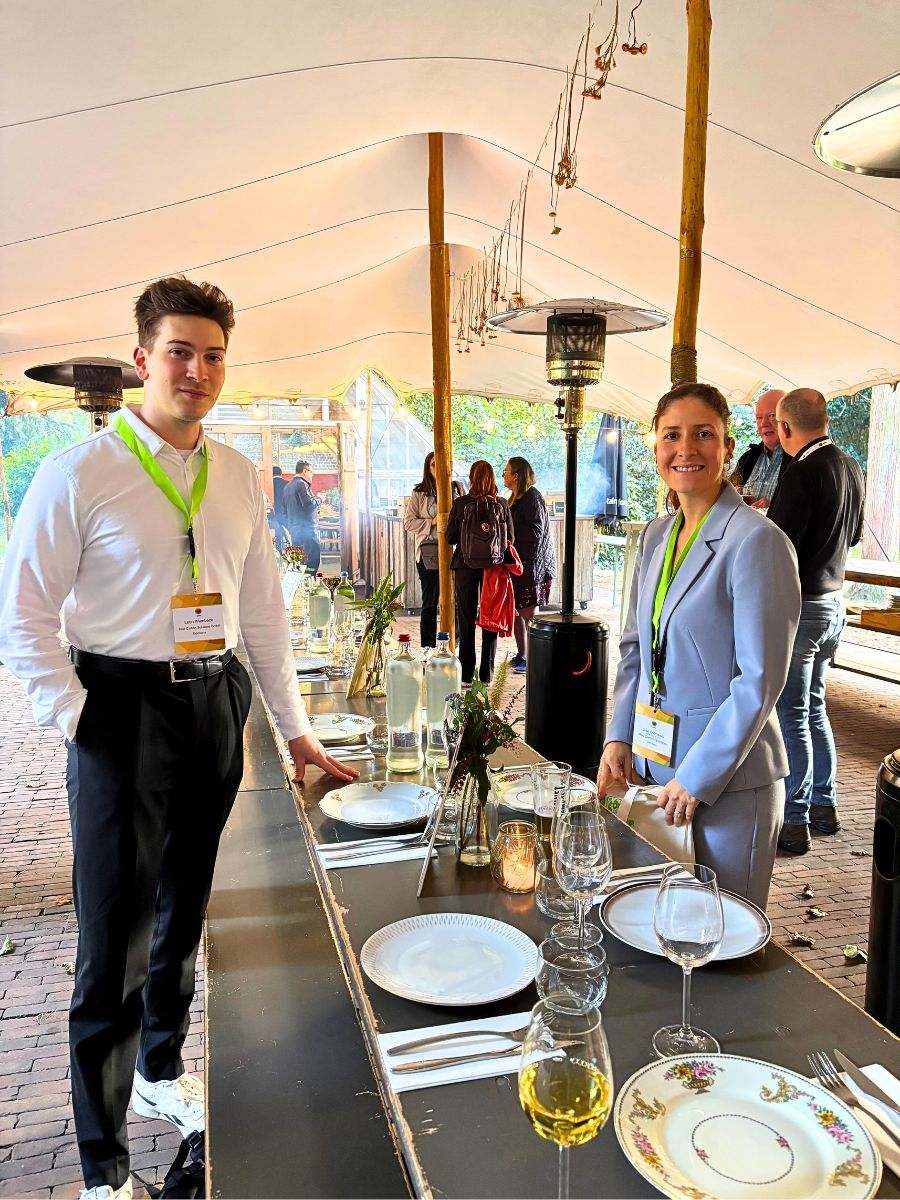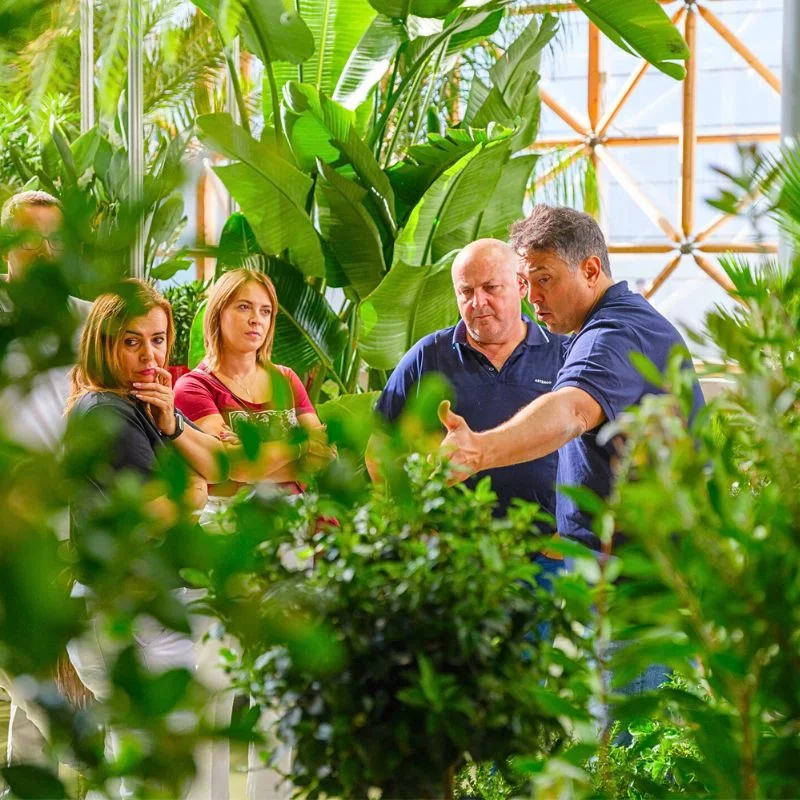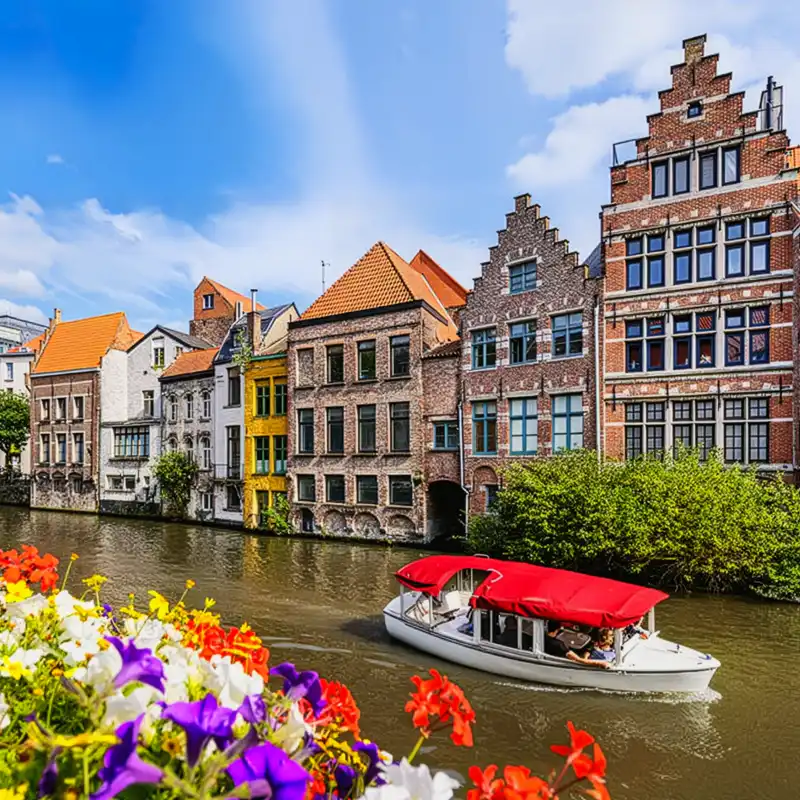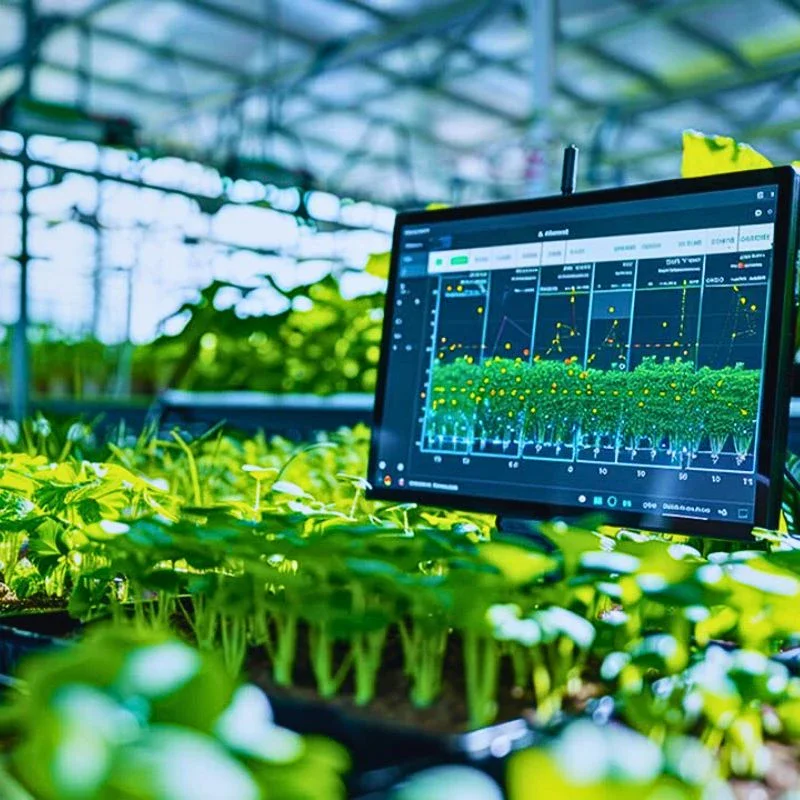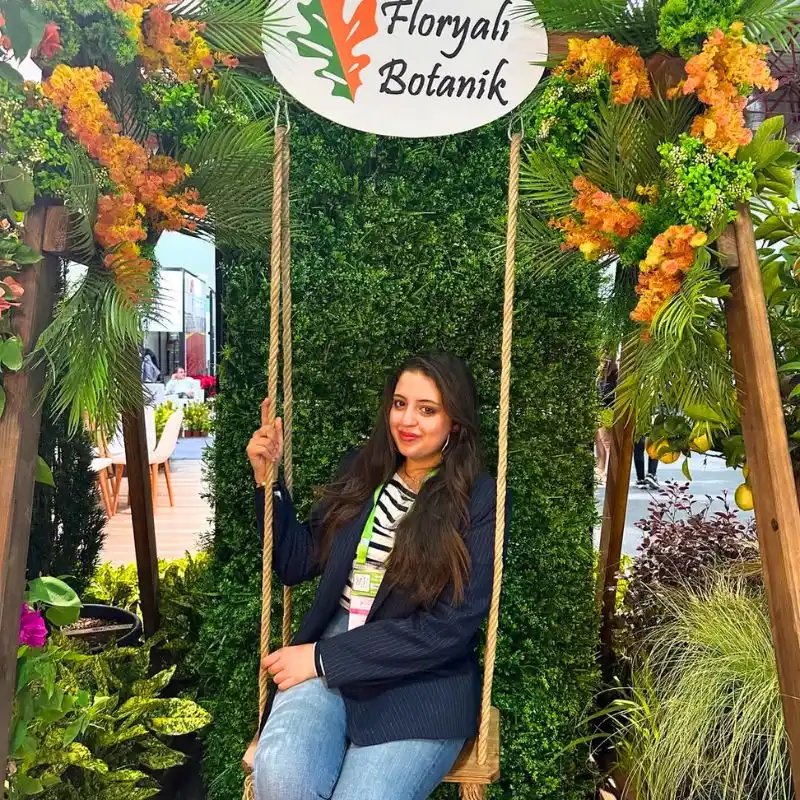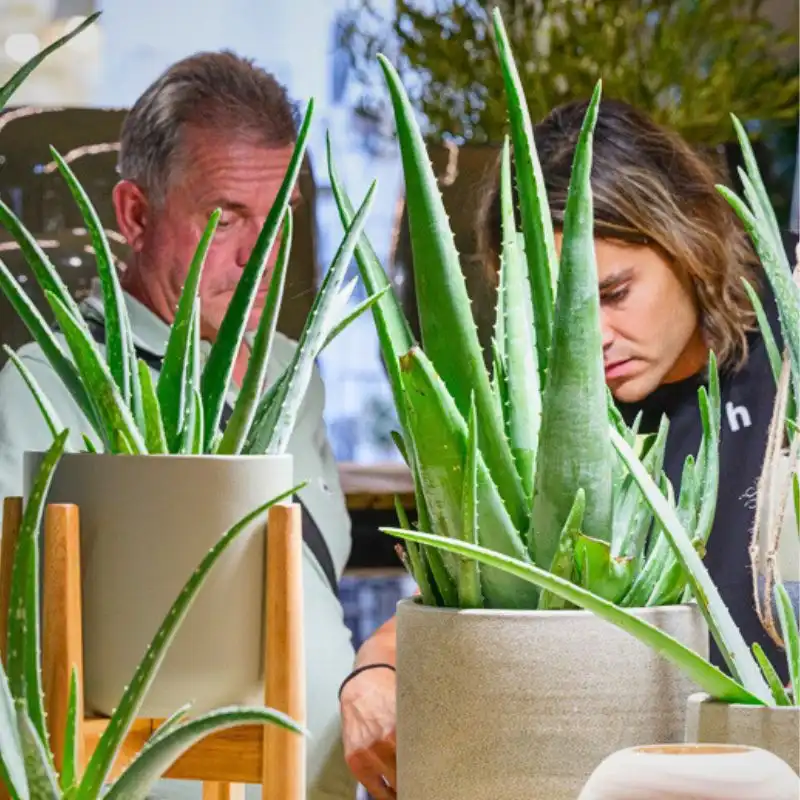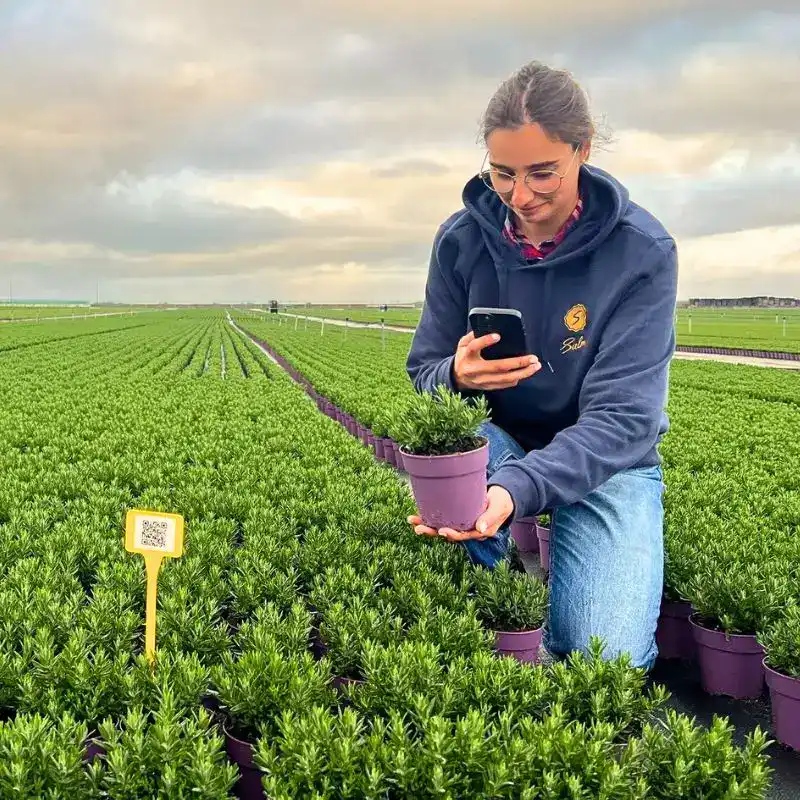The 77th Annual Congress of the International Association of Horticultural Producers (AIPH) opened on Sunday, September 14, in the vibrant city of Ghent, Belgium. Over 110 delegates from 29 countries gathered at the NH Collection Hotel for a warm welcome dinner, kicking off five days of floriculture-focused dialogue, innovation, and collaboration in the heart of Europe. Thursd.com’s Floral Connector, Regine Motmans, was present and joined the congress.
What Was the 77th Congress AIPH 2025 in Ghent, Belgium, About?
The magnificent city of Ghent, Belgium, is the epicenter of the very best in horticultural ideas. This year’s agenda focused on sustainability, technological innovation, and the development of artificial intelligence (AI) in horticulture, giving delegates insight from global experts in horticultural sustainability and technology, receiving updates from upcoming AIPH-approved Expos, and experiencing Belgium’s dynamic floriculture industry first-hand.
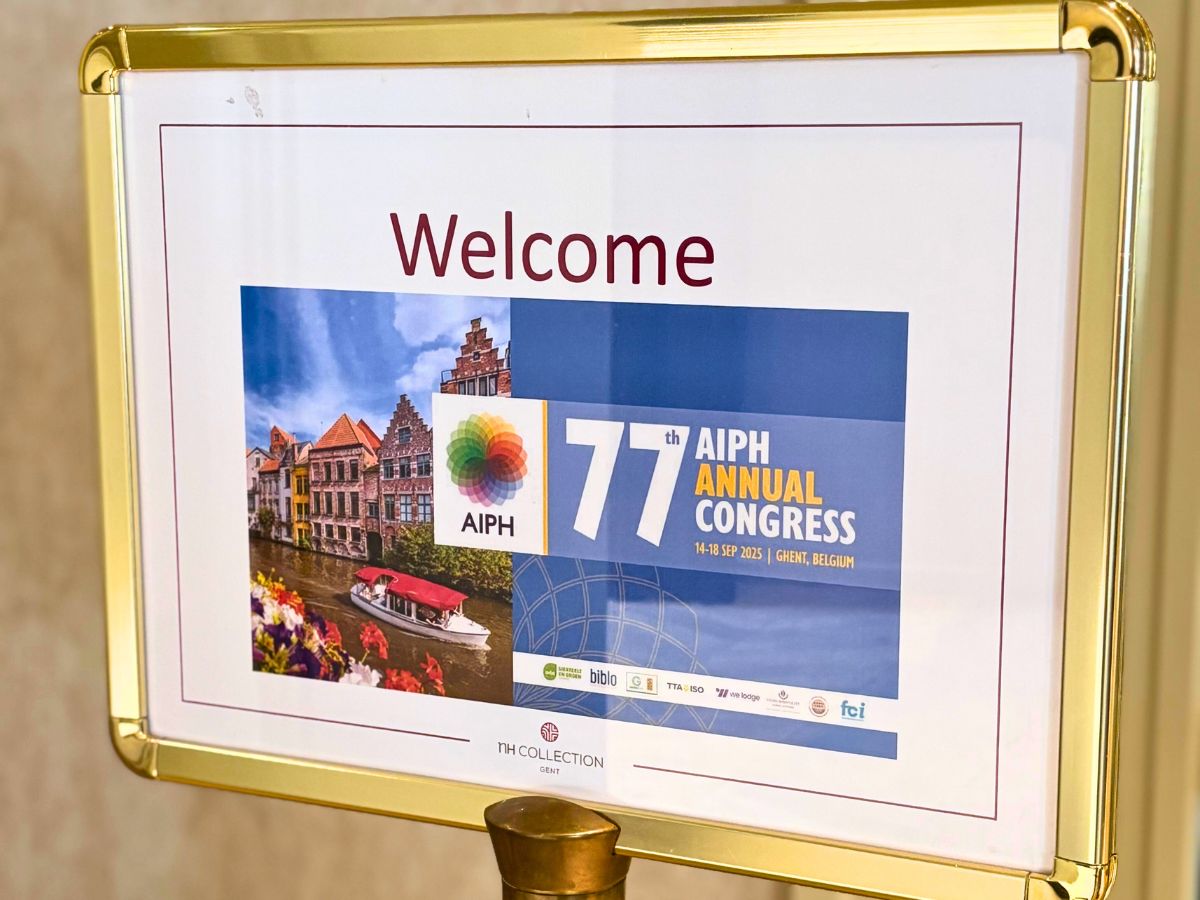
AIPH Congress Welcomes Its Participants
Welcoming participants, AIPH President Leonardo Capitanio stressed the Congress as a global meeting point:
“This Congress is where the world of horticulture comes together to share knowledge, set future priorities, and celebrate our achievements. In times of rapid change, collaboration through AIPH is more vital than ever.”
Who Was Hosting This Event?
This Congress was hosted by AVBS, founded in 1972 as the trade federation for ornamental plant growers, nursery stock producers, cut-flower growers, florists, garden landscapers, and garden contractors in Flanders. The federation represents 70% of Belgium’s ornamental growers and traders. AIPH Congress's program spotlights expos, sustainability, innovation, and AI in horticulture, alongside professional visits that showcase Belgium’s dynamic green industry.
Regine:
"It's fantastic to see how people from all over the world make the effort to join the AIPH congres. It was worth it for sure. All the information about the coming horticultural expo's in Thailand, Japan, and Turkey, all approved AIPH events and the exciting news about the Expo in Baghdad and Minnesota which both got a green light and will be supported events for AIPH, it was very interesting to see and hear about."
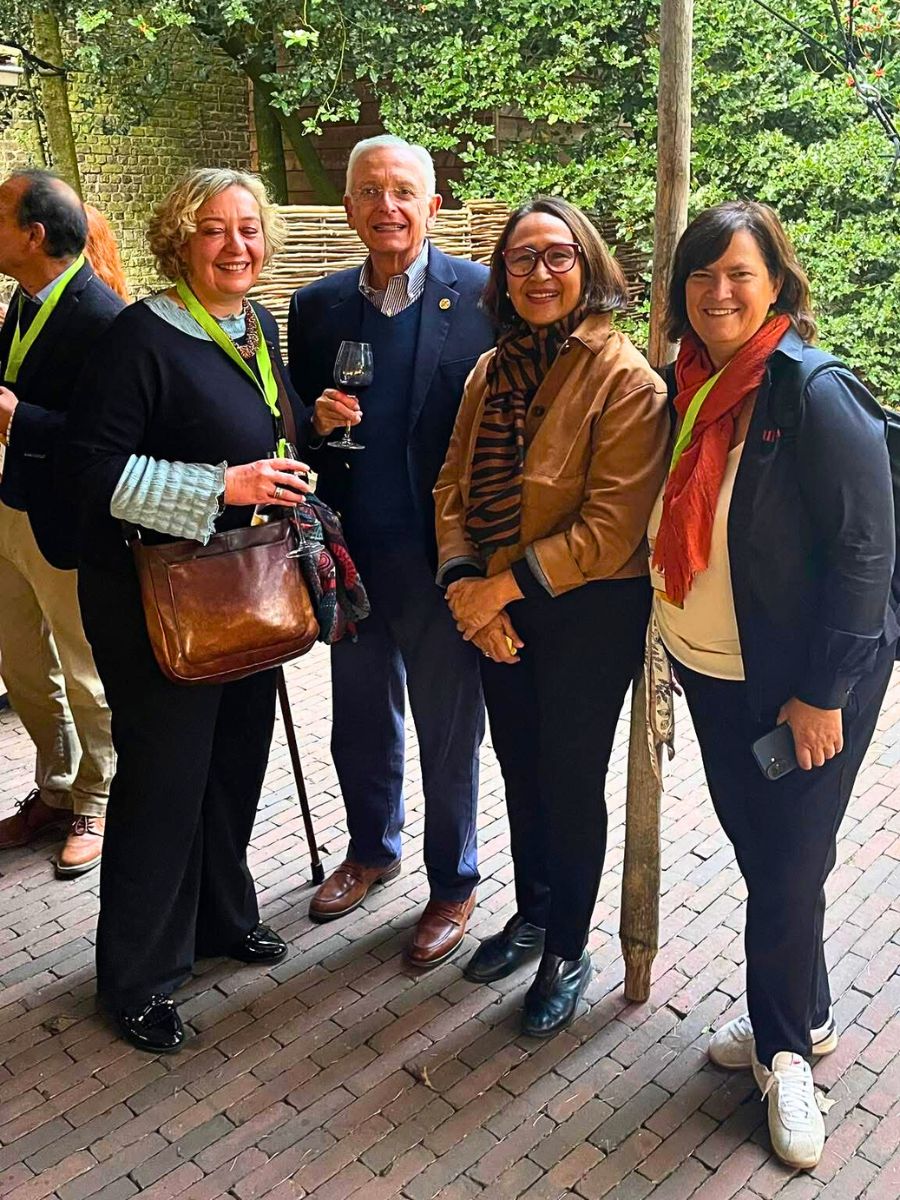
A Warm Welcome from Flanders
Opening the 77th Annual AIPH Congress in Ghent, Flemish Minister Bram Van Hecke highlighted both pride and purpose. “Horticulture is in our DNA,” he told delegates, noting how Flanders’ ornamental sector has grown far beyond its azalea roots into a vibrant mix of family-run businesses, global players, and innovators.
He underlined that flowers and plants are more than an export success: they are essential for wellbeing, sustainable cities, cleaner air, and biodiversity. At the same time, growers face pressing challenges, from plant protection and labour to generational renewal.
“Together we must guide the sector towards sustainable innovation, stressing government support for research, sustainability and European intiatives like Green Cities.”
His message was clear: horticulture is part of the solution to climate and biodiversity challenges, and this congress is the place to exchange ideas, inspire, and build collaborations.
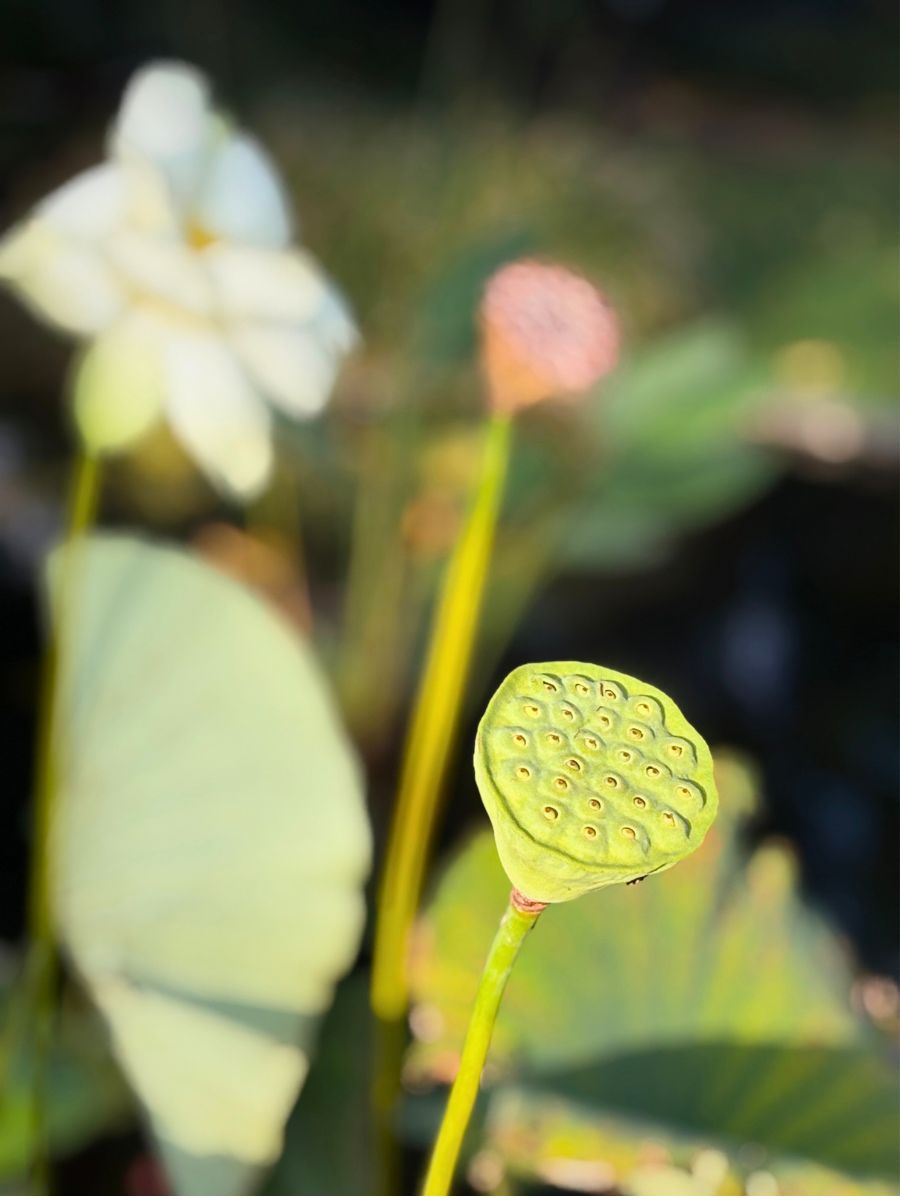
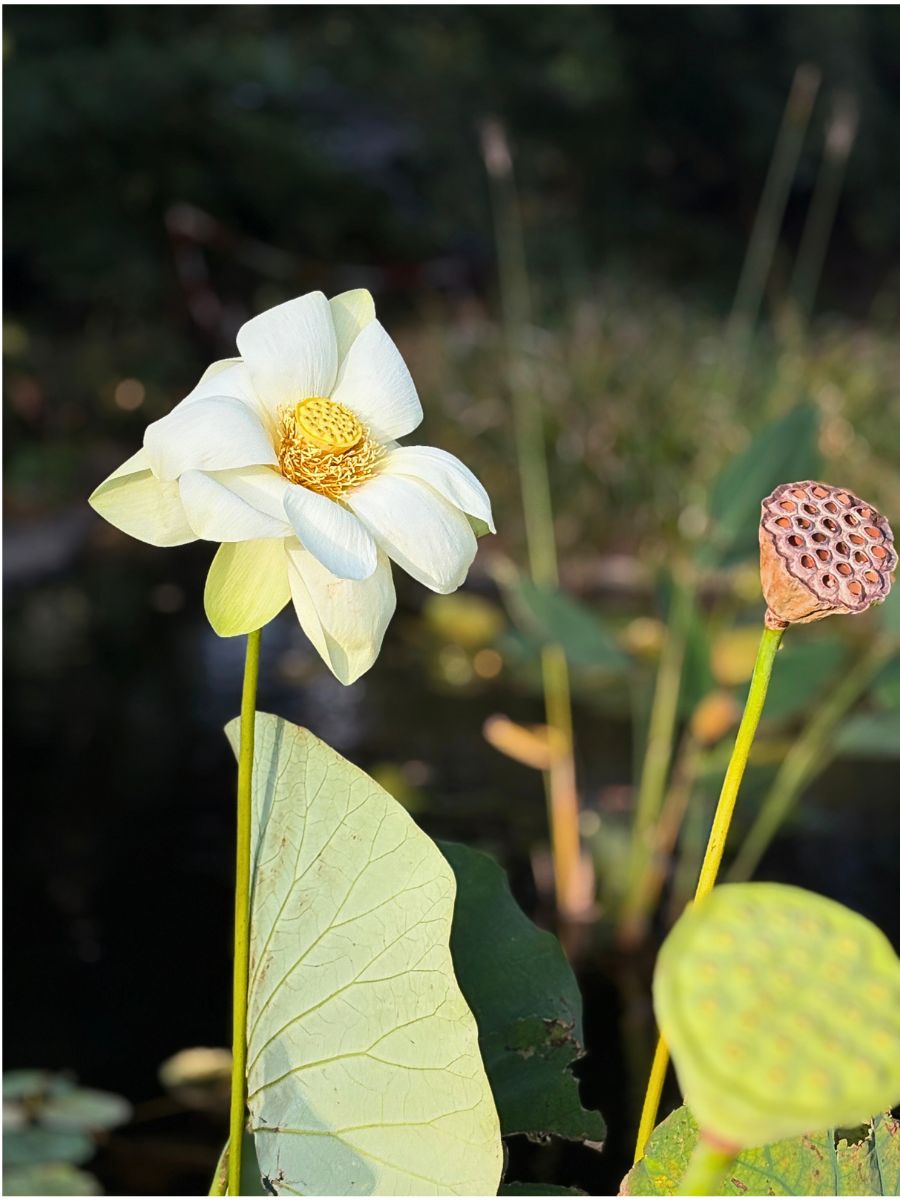
What Were the Highlights of the Congress Day About Sustainability?
Miet Poppe of AVBS Belgium, the host of this congress, feels it is very special to have such a diverse audience.
Miet:
"Hosting this event was originally scheduled a few years ago, but it got postponed because of COVID-19. I'm honored to have people here from all over the globe. AIPH was also pleased to see a presence from members from all corners of the world and believes Flanders is a great location to gather. As our chairman, Erik Boterdaele, said that Ghent is the hotspot of horticulture, where tradition meets innovation. Flanders floriculture is a frontrunner in sustainable practices, and AI is also being used in many companies as a successful tool.
The two-day tour through Flanders, is a highlight for the participants. Among these visits: De Nijs Dianthus is proud to show its new greenhouse, and spread the news of their son joining the company, the Viaverde testcenter, which is unique in its kind, and where Bruno Gobin answered any question, Fleur Wholesale, Leybaert Moerbeke with its Rododendrons, Romberama, Plantselect with its own in vitro lab, Plantlovers who could possibly win a coming IGOTY Award, and of course a visit to Bruges, one of the tourist highlights of Belgium."
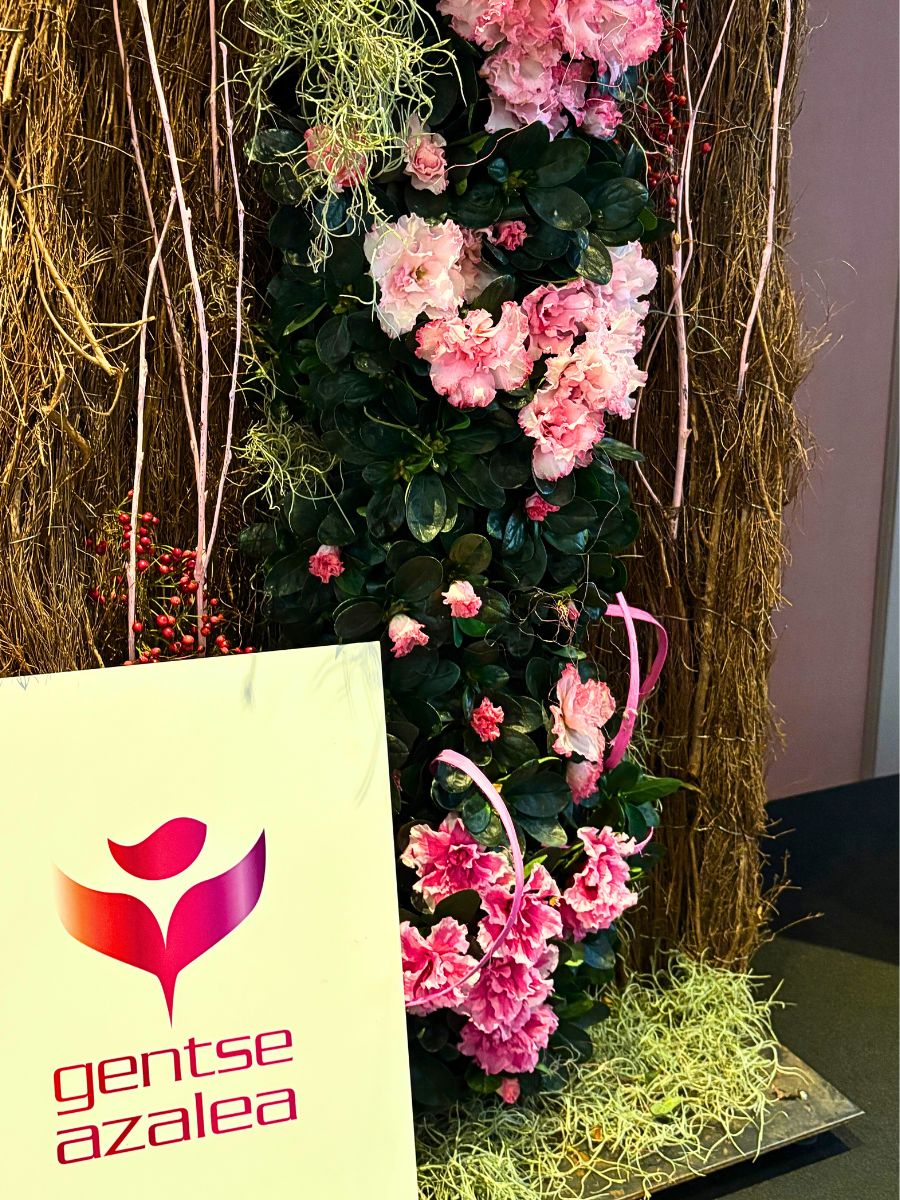
A Few Other Highlights of Congress Day AIPH
Jack Goossens talked the day together with all the speakers. He had a few baselines that are to be remembered about sustainability.
"Our sector is expected to be future-proof. By 2027, we will have to meet the FSI standards. Is it possible? Is there enough time? Yes, we can. Sustainability is not just a requirement, it's an opportunity for our sector."
Juan Carlos Isaza, Senior Technical Expert, Global G.A.P. Standards, pointed out that they are aiming to support all national standards, because decision-making should be based on science. Besides that, social responsibility is very important.
Juan:
"We are all in this together, and we have to align to be future-proof. Like Darwin said: Survival doesn't belong to the most beautiful, but to the most adaptable. So let's adapt and move forward."
Daan de Vries, an independent sustainability consultant with a lot of experience and knowledge on the matter, had a keen eye on the future. Can we innovate our way out of this? Wool pallets are cheap, and in growing and breeding, they work well; that's good.
Daan:
"We have to educate people more. Like for example, insects can be on plants when you buy them; when they come into your garden, insects will be there anyway. Using hot water to fight weeds is very successful too, if you don't put chemicals in the soil, they can not come out. Stay curious, use less fossil energy, fewer chemicals, fewer material resources, and pay and treat the people that work for you well. Buyers and breeders have to support their growers to reduce their impact."
While Daan feels transport has a significant impact, it might be necessary to shorten the supply chains. Sylvie from Union Fleurs, the international umbrella organisation representing the floricultural trade, promotes and defends their interests, and does not completely agree with this statement. Buying local products is not always the answer.
Sylvie Mamias, Secretary General:
"Clear rules make clear solutions! That's what is needed in the EU. The big shift is from voluntary behaviour to legally binding obligations is here. The power of cooperation is very important in our sector. We have the experience of FloriPEFCR. Important work is done now, we are ready to calculate and and implement according FSI."
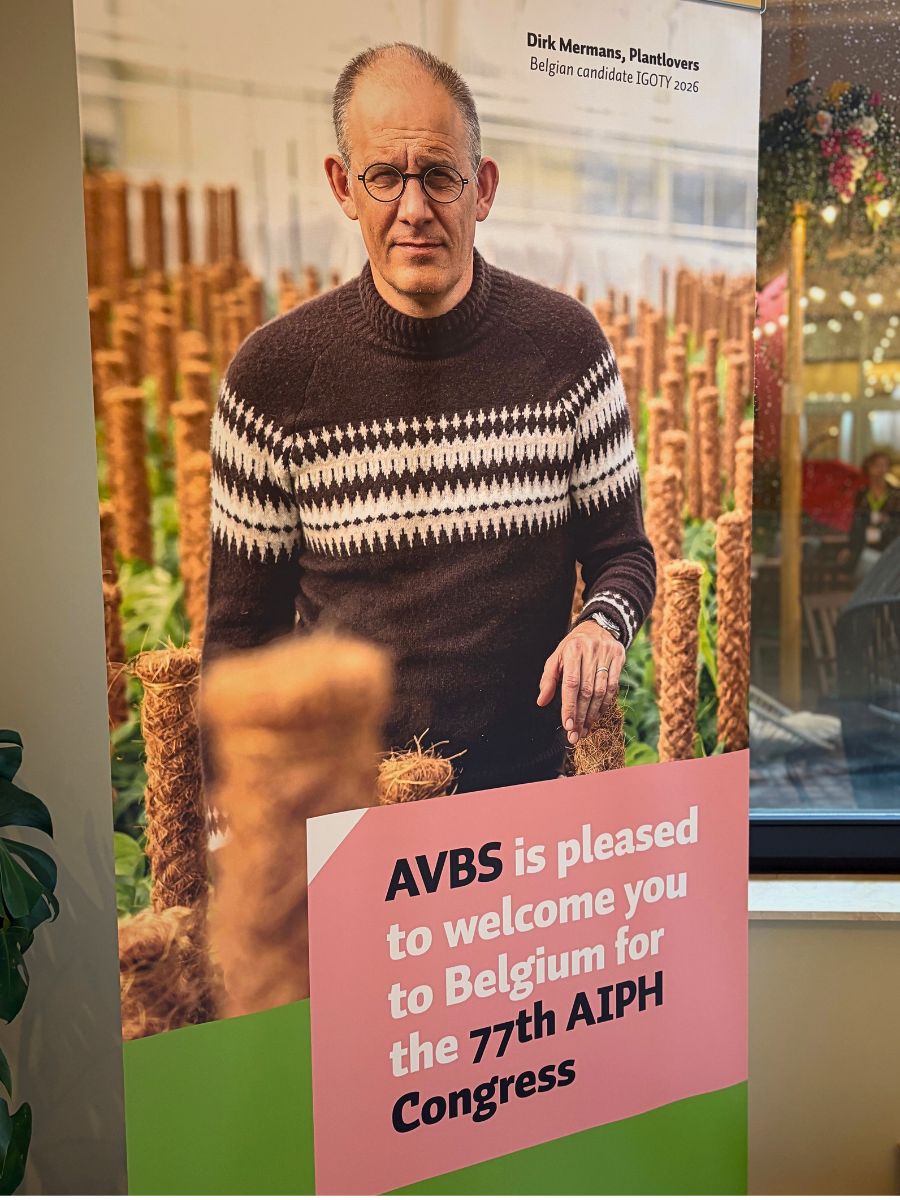
The Great Growing Media Debate: Facts Over Ideology
Chaired by AIPH Secretary General Tim Briercliffe, the Great Growing Media Debate brought straight talk from across Europe. Cecilia Luetgebrune (Growing Media Europe) was clear: peat remains the most suitable medium for many crops, but the transition must be driven by science and transparency, not ideology.
From the UK, Jennifer Pheasey (HTA) pointed to momentum — with 25% of growers already peat-free — but stressed that ambition must be matched with real support. Germany’s Julia Ostrowski (Horticert) highlighted certification as the key to credibility, ensuring growers are recognized for sustainable choices.
The debate revealed diverging national approaches, yet one shared reality: moving beyond peat is as much about economic and social responsibility as it is about science. For many delegates outside Europe, this was a glimpse of the debates still to come.

Industry Action Panel: Sustainability at the Core
The closing panel brought strong global voices together — from Colombia’s Augusto Solano (Asocolflores) to Dutch leaders Stefanie Miltenburg (Royal FloraHolland), Marco van der Sar (Plants & Flowers Foundation), and Jeroen Oudheusden (FSI), joined by Juan Carlos Isaza (GLOBALG.A.P., Germany).
Solano reminded delegates that sustainability is above all about people, communities, and wellbeing — while warning that the industry must tell its story better. Meaning flowers and plants bring happiness and joy. Miltenburg pointed to reputational pressures, stressing that “credibility comes with changed behaviour, backed by data.” Oudheusden challenged the sector to act boldly: “If a crop cannot be produced sustainably, perhaps we should question whether we should be growing it at all.”
The discussion showed how priorities differ across regions, but one point was clear: sustainability is both a local responsibility and a global imperative.
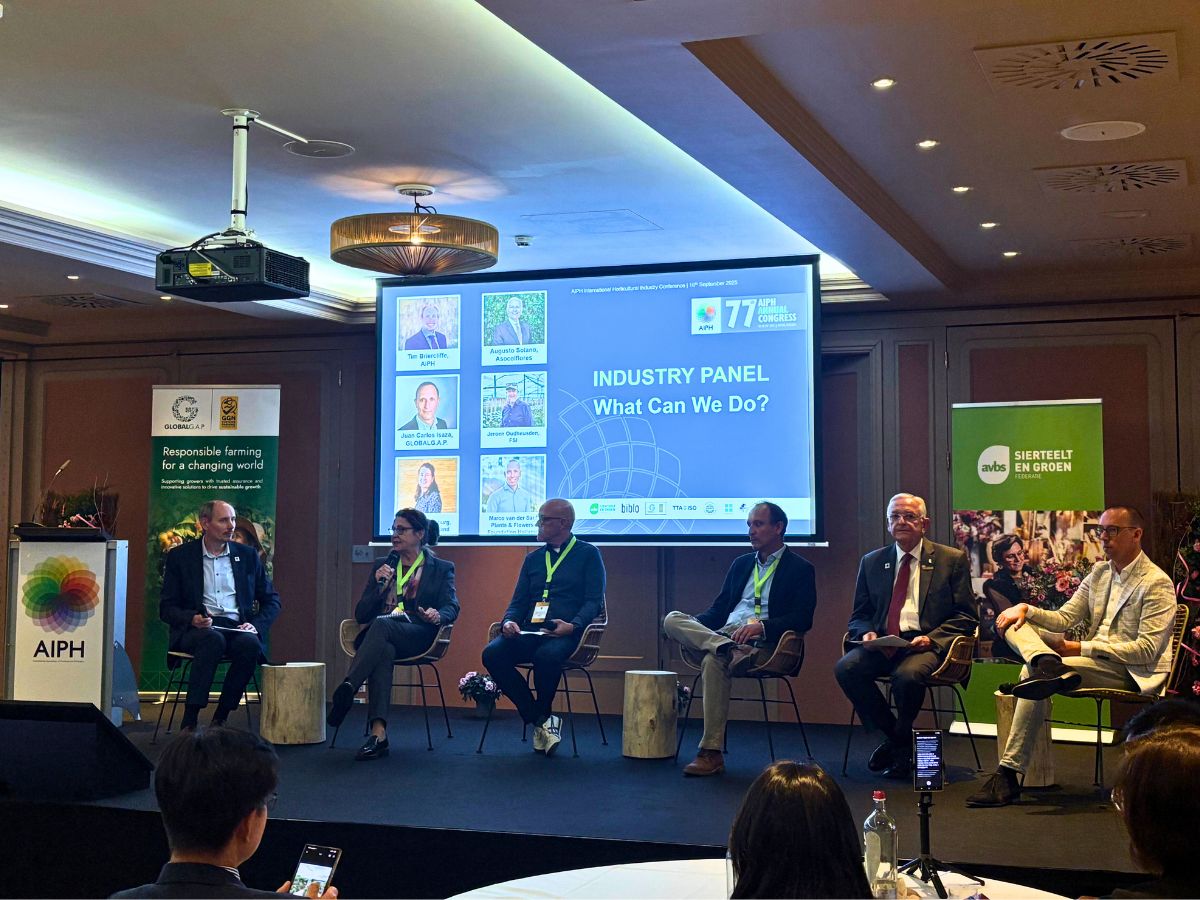
Did You Know You Could Learn About AI at AIPH Congress?
The afternoon turned to innovation, opened by Ingrid Creten of KBC’s Surf Studio, the innovation hub.
“You can’t stop the waves, but you can learn how to surf.”
So what she wanted to say: learn and find out how AI is transforming business. From Meta Ray-Ban glasses to generative video, she illustrated the scale of change now arriving, urging growers to explore and experiment with tools that can drive competitive advantage. Here's a summary of all AI tools to discover.
- NotebookLM (upload articles and create an interactive podcast of them)
- Meta Rayban, try it! You have your hands free.
- Microsoft Copilot for texts and MidJourney for pictures.

Ingrid about Sora:
"It's amazing what AI can do. That power is now accessible to everyone in this room. Use it! Sora can make your images come to life. But a human always needs to cross-check. Don't forget."
- Dreamini 3.1
- VEO 3 to make it move.
- Interactive video mode
- Suno creates your song for your event, brand,
- Create your own crew of AI agents to support your work (Waymo is an example of a very independent AI agent)
- Gemini advanced, now with deep research.
- ChatGPT Operator
- N8N
Dutch Greenhouse Delta CEO Mirjam Boekestijn then outlined global greenhouse trends:
“The next wave of greenhouse innovation is about linking sustainability with economics, using energy and water smarter, and deploying automation to overcome the labour crisis. Scale, consolidation, and new investors mean we must think differently about service and strategy, not just technology.”
Production technology was presented by Joep Hendricks of TTA-ISO, the Industry Conference’s Headline Sponsor.
“Hands still touch every flower we buy, but automation is transforming propagation and planting. This isn’t about replacing people; it’s about consistency, quality, and unlocking the data that AI needs to make us more efficient.”
He showed how robotics and vision analysis are enabling growers to process millions of cuttings with minimal labour, while improving quality and reducing inputs.
Closing the session, Dr. Johan Van Huylenbroeck, Scientific Director of ILVO, demonstrated how drones and deep-learning AI can identify stress, water issues, or pests days before the human eye:
“AI is not about science fiction, it’s about faster, better decisions for growers. By combining imagery, modelling and automation, we can turn research into tools that work in practice.”
What Made the AIPH Congress 2025 in Ghent So Important?
This year’s congress marked a turning point for horticulture. Sustainability and technology were no longer framed as future ambitions but as today’s urgent priorities. From European legislation on chemical use and growing media, to the search for peat-free solutions, delegates agreed: sustainability is now a baseline for business success. It's in the boardrooms, and has to be part of a company's DNA.
At the same time, technology and artificial intelligence were presented as industry accelerators. AI-driven crop monitoring, smart greenhouses, and data-led logistics are already helping growers worldwide reduce waste, optimize resources, and improve yields.
How Does the Future of Horticulture Look After the AIPH Congress?
With Ghent as its stage, Belgium showcased its horticultural strength: a unique blend of tradition and innovation. The message was clear—horticulture stands at a pivotal crossroads. Those who embrace sustainability and technology today will be tomorrow’s leaders.
The AIPH Congress 2025 was more than a gathering; it was a global call to action. The flowers and plants of the future depend on the choices made now.
Leonardo, president of AIPH, closed the congress:
"We are here to shape the future together. Let's use our influence to do it right!"


